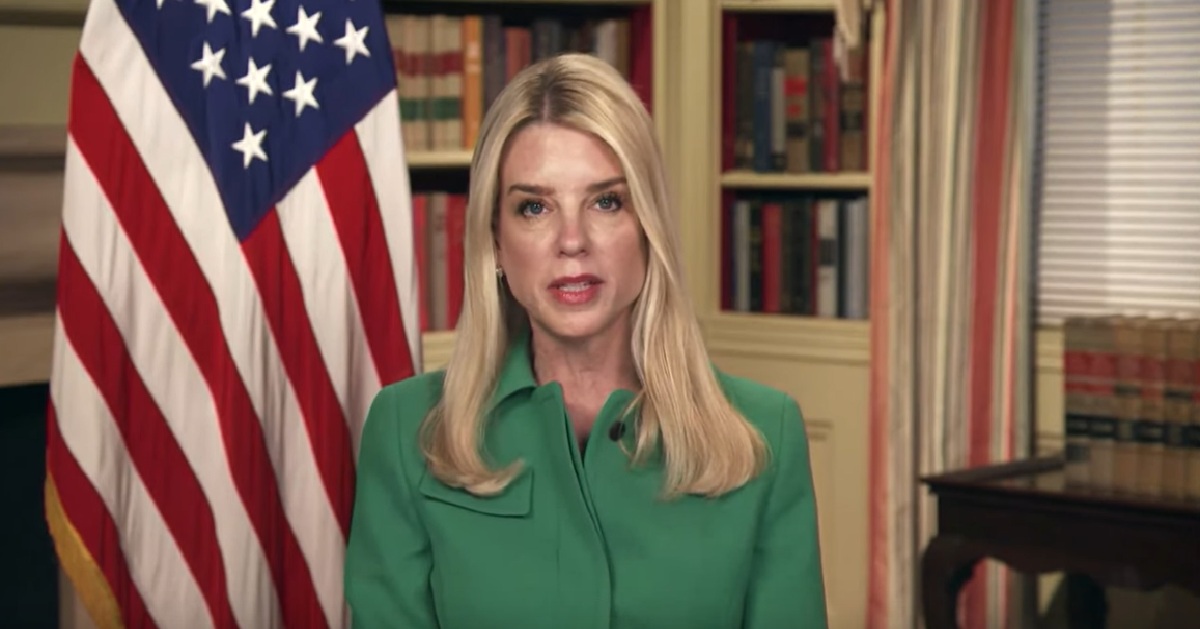Justice Thomas criticizes Supreme Court for rejecting widow’s lawsuit
Imagine losing your spouse in a tragic accident, only to be told the government can’t be held accountable because of a dusty old precedent. That’s the heartbreaking reality for the widow of Air Force Staff Sergeant Cameron Beck, whose case was recently turned away by the Supreme Court, drawing a sharp dissent from Justice Clarence Thomas, Fox News reported.
This case revolves around a devastating 2021 incident in Missouri, where Beck was killed by a distracted civilian government employee, with the Supreme Court now refusing to hear his widow’s plea for justice.
Back in 2021, Beck was riding his motorcycle off a military base in Missouri, heading to enjoy a simple lunch with his wife and young child, then just seven years old. He never made it. A civilian government worker, distracted by her cell phone, struck him, ending his life at the scene.
Tragic Loss Sparks Legal Battle
Adding insult to injury, that employee later admitted fault in a plea deal, confirming what everyone already knew: this was a preventable tragedy. Yet, when Beck’s widow sought to hold the government accountable, she was met with a cold shoulder from the legal system. It’s the kind of outcome that makes you wonder if justice is just a word in the dictionary.
Federal courts, including the U.S. Court of Appeals for the Eighth Circuit, slammed the door on her claim, pointing to a precedent called Feres v. United States. This rule shields the government from lawsuits when a servicemember dies while on duty. But here’s the rub: Beck wasn’t on duty—he was off the clock, just trying to grab a bite with his family.
Justice Clarence Thomas didn’t hold back in his dissent, arguing that the lower courts stretched the Feres precedent beyond reason. He pointed out that Beck wasn’t on some military errand when tragedy struck. If common sense ruled the day, this case wouldn’t have been tossed out so easily.
Thomas Challenges Misapplied Legal Shield
Thomas minced no words, stating, “Beck was not ordered on a military mission to go home for lunch with his family.” He added, “So Mrs. Beck should have prevailed under Feres.” It’s a biting reminder that even the highest courts can dodge the obvious when it suits them.
Let’s be clear: Thomas isn’t just playing contrarian here. His point is that if the Supreme Court won’t revisit outdated precedents, it should at least apply them correctly, not twist them to protect government negligence. This isn’t about undermining the military; it’s about ensuring fairness for those who serve.
Unfortunately, the Supreme Court didn’t see it that way, refusing to take up the case since it takes four justices to agree to hear a petition. That left Beck’s widow without recourse, stuck in a system that seems more interested in protecting itself than delivering justice. It’s a bitter pill for any patriot to swallow.
Sotomayor Calls for Congressional Action
Even Justice Sonia Sotomayor, who sided with rejecting the petition, admitted the outcome stinks, urging Congress to step in and rethink the laws tied to Feres. She wrote, “I write … to underscore that this important issue deserves further congressional attention.” Her words are a faint hope, but let’s not hold our breath for lawmakers to fix what the courts won’t touch.
Now, don’t mistake this for some progressive plea—Sotomayor’s call for action doesn’t erase the core issue of government overreach in hiding behind legal shields. If anything, it highlights how broken the system is when even the left-leaning justices see the unfairness. But relying on Congress? That’s like asking a toddler to rebuild a carburetor.
For conservatives, this case is a glaring example of how bureaucracy trumps accountability, leaving families like Beck’s in the lurch. The Feres precedent might have made sense in some narrow military contexts, but applying it to an off-duty tragedy feels like a cheap dodge. It’s not about coddling anyone; it’s about owning up to mistakes.
Widow’s Fight Exposes Systemic Flaws
Think about the message this sends to our brave servicemembers and their families: sacrifice everything, but don’t expect justice if the government slips up. That’s not the America most of us believe in, where personal responsibility and fair play should reign supreme. This isn’t a culture war issue—it’s a common decency one.
Justice Thomas’s dissent isn’t just a legal footnote; it’s a rallying cry for those who think the system has lost its way. He’s not asking for handouts, just for the rules to be applied as written, not warped to fit a narrative of untouchable power. If that’s not a hill worth fighting on, what is?
At the end of the day, Beck’s widow deserves better than a legal shrug, and so do all the families who stand behind our military. The Supreme Court’s refusal to hear this case isn’t just a missed opportunity—it’s a failure to uphold the values of justice and accountability that should define us. Let’s hope this sparks a louder conversation, because silence won’t bring back what was lost.




